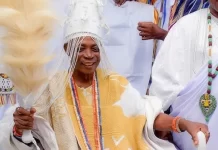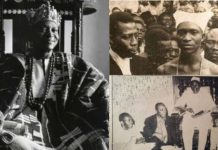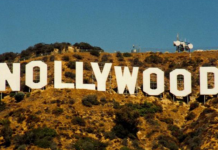More than 25 years after his death, Fela Anikulapo Kuti remains one of the most iconic and influential figures in Nigerian history.
A pioneer of Afrobeat, a fiery political activist, and a cultural icon, Fela’s legacy lives on not just through his music, but through the movement he sparked—a movement that continues to inspire new generations of artists, youth, and revolutionaries across Nigeria and beyond.
In this article, we take a deep breath into how Fela’s boldness, sound, and soul still shape modern-day Nigeria—from the beats we dance to, to the protests we march in, and the pride we carry as Africans.
The Music Never Stopped: Afrobeat Lives On

Fela Kuti didn’t just create Afrobeat—he made it a weapon. His signature blend of traditional African rhythms, jazz, funk, and provocative lyrics challenged oppressive systems and ignited minds. Today, Afrobeat is a global genre, and its heartbeat still carries the DNA of Fela.
Burna Boy, one of Nigeria’s biggest music exports, openly credits Fela as his primary influence. Songs like “Ye” and “Monsters You Made” channel Fela’s themes of African pride, injustice, and resistance. Seun Kuti and Made Kuti—Fela’s son and grandson—carry on the family tradition, not just with their music but with their commitment to using art as activism.
Even outside the Kuti bloodline, artists like Wizkid, Falz, Tems, and Asa often echo Fela’s influence—either through sampling his music, embracing live instrumentation, or boldly addressing social issues. Today’s Afrobeat isn’t just a genre; it’s a global force, and Fela remains its spiritual father.
Fela the Activist

Fela was not just a singer—he was a soldier in the war against injustice. He fearlessly criticized military dictators, corrupt politicians, and foreign exploitation. Songs like “Zombie,” “Coffin for Head of State,” and “Sorrow, Tears and Blood” weren’t just hits—they were protests set to percussion.
That same political spirit is alive in modern Nigeria. During the 2020 #EndSARS protests, many demonstrators marched to the rhythm of Fela’s songs. His lyrics—though written decades ago—mirrored the same frustrations felt by today’s youth: police brutality, government failure, and economic hardship.
Fela’s Kalakuta Republic, once raided and burned by the military, has now become a symbol of resilience and resistance. In a society still grappling with poor governance, economic inequality, and censorship, Fela’s defiance continues to serve as a blueprint for how music can challenge the status quo.
The Shrine: More Than a Venue
The New Afrika Shrine, managed by Femi and Seun Kuti in Ikeja, Lagos, has become a sacred space for art, expression, and activism. From hosting music festivals like Felabration to serving as a stage for political conversations, the Shrine remains a living monument to Fela’s vision.
Every October, thousands gather for Felabration—an annual music festival in honor of Fela’s birthday. It’s more than a concert; it’s a cultural revival. Local and international artists perform, activists speak, and fans from all walks of life come together to celebrate the man who changed everything.
The Spirit of Fela in Nigerian Youth

Fela’s legacy has transcended music and politics; it has taken root in the consciousness of Nigerian youth. In a country where unemployment is high and opportunities limited, more young people are choosing creativity, self-expression, and activism—just like Fela did.
From fashion to spoken word, street art to online movements, young Nigerians are embracing the spirit of originality, rebellion, and cultural pride that Fela embodied. His famous phrase—“music is the weapon”—has become a mantra for creatives trying to influence society through their craft.
Final Note: Fela Never Left
Fela Kuti may have died in 1997, but his message, his music, and his mission never did.
He remains a compass for Nigeria’s conscience, a voice that continues to echo through speakers, stages, and street protests. In a time where many seek heroes who speak truth without fear, Fela still stands tall.
His legacy is not just in statues or museums—but in every beat of Afrobeat, every act of resistance, and every young Nigerian who dares to speak, sing, or shout for a better future.

















